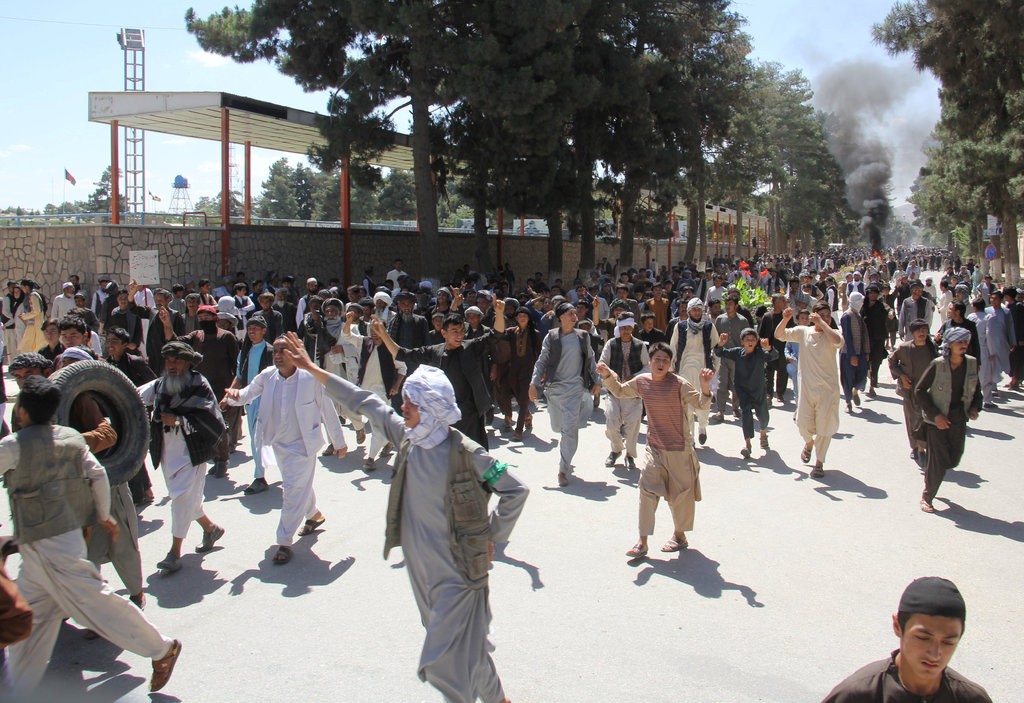Since the beginning of the Afghan peace process, the Taliban has always refused to negotiate directly with the Afghan government and called for direct talks with Washington instead.
During this year’s Ramadan, Afghan President Mohammad Ashraf Ghani announced a seven-day ceasefire, hoping to encourage the Taliban to come to the negotiating table. In return, the Taliban announced only three days of ceasefire, after which they continued their suicide bombings and attacks on Afghan military bases.
When the government’s seven-day truce expired, it was unilaterally extended for another ten days. The Taliban responded with severe onslaughts on Afghan military citadels. Finally, Ghani ended the one-sided ceasefire and ordered the security forces to step up their military operations against the Taliban.
Unfortunately, the ceasefire did not change the Taliban’s stance of not negotiating directly with Kabul. When Kabul’s actions to get the Taliban to peace talks did not get anywhere, Trump’s administration urged its diplomats to seek direct talks with the group. It reflected a dramatic change in the American policy of not communicating directly with the Taliban. The silence of the Afghan government in this regard indicates Kabul’s uneasiness with Washington’s direct talks with the group.
During his first days in office, President Donald J. Trump held a press conference to announce what was considered a major change in U.S. policy towards the Afghan government. Political analysts argue that Trump’s office is quietly looking for significant changes in its approach, leading senior U.S. diplomats to direct talks with the Taliban.
The new approach of the U.S. is brought up at a time when the Taliban views the Afghan government as an illegitimate and U.S.- handpicked one. The Taliban has long argued that it only negotiates with the U.S. that overthrew the Taliban regime in 2001, while the U.S. constantly insisted that the Taliban should talk directly with Kabul.
A recent report by the U.S. Special Inspector General for Afghanistan Reconstruction (SIGAR) points to another factor that could persuade Washington to seek direct talks with the Taliban. According to the report, the Afghan government has control or influence over only 229 out of 407 districts, while the Taliban controls 59 of them. In the remaining 119 districts battles between the Afghan government and Taliban insurgents take place.
Meanwhile, the United Nations said that in the first six months of this year, the number of civilian casualties reached 1,692, hitting a record since the start of the 2009 U.N. investigations in Afghanistan. It is argued that the above factors, eventually, led the U.S. to start direct talks with the Taliban group.
When the New York Times reported that U.S. officials were looking for direct talks with the Afghan Taliban
Kabul’s fear derives from several issues. If the Afghan government is sidelined in peace talks with the Taliban, it echoes that they are a puppet of the U.S. without full authority when it comes to large-scale political decision-making, damaging their political legitimacy. The Afghan government is afraid that it may
Political experts believe that
The Afghan government’s unilateral ceasefire has raised Ghani’s popularity to the extent that Zarif Aminyar, a political expert and Harvard alumni, penned an article about him, questioning if Ghani could become the Gandhi of Afghanistan. Aminyar holds that Ghani is a reformist leader, whom the U.S. government strongly needed as a partner over the years of former President Hamid Karzai’s unforeseeable regime.
If the U.S. wants to restore peace and prosperity in Afghanistan, Ghani is undoubtedly one of the best options for leading the country. President Ghani is full of love and passion for ending war and conflict, but the U.S. seems suspicious. When the prospective conqueror of the Afghan war is praised in such manner, it is obvious that the U.S. direct talks with the Taliban group can cloud these sweet words.
Last but not the least, every smart politician knows that the Afghan conflict is a multidimensional one involving Afghan, regional, and global actors. Given its inherent complexity, none of the main actors holds the key to solving the crisis. Therefore, the peace process will be challenging and requires time.
The only alternative to the continuing bleeding and instability is that the parties involved should provide a path to the peace process. Thus, the leaders of the Afghan government should cooperate with other countries engaged in this war instead of dreaming of winning the battlefield alone. The idea that they can manipulate peace talks with the Taliban in their favor in the future presidential elections is a false and shortsighted calculation.
Disclaimer: The views and opinions expressed here are those of the author and do not necessarily reflect the editorial position of The Globe Post.





















